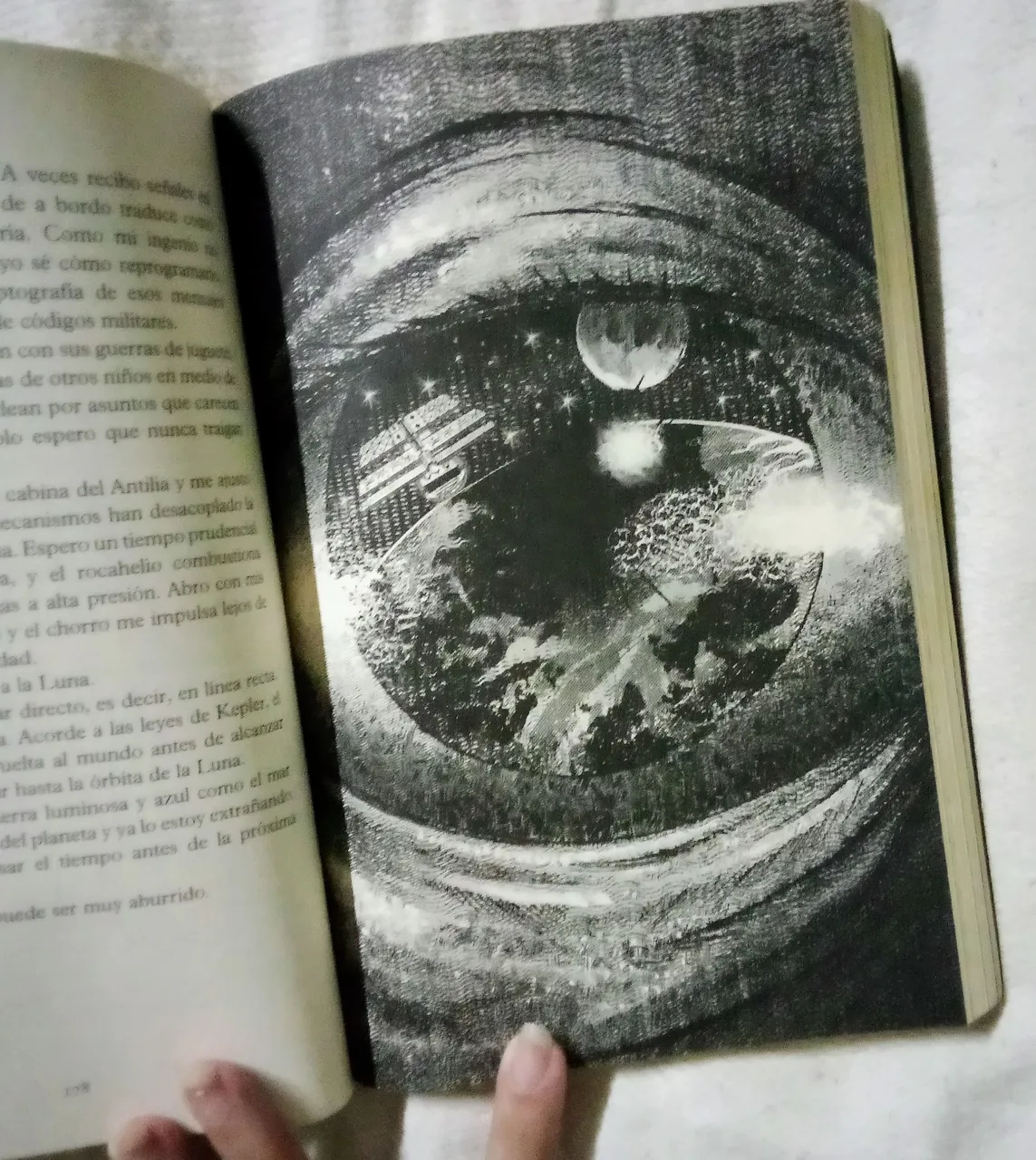English

Perhaps we are all the dream of a deranged god.
Imagine a world where sea leviathans attacked Columbus’s caravels, the English claimed half of Cuba, Caribbean pirates traveled in zeppelins, and Native Americans successfully expelled the English… Picture a novel that rewrites, plays with, and reshapes the history of our America like no other.
El foso de Mabuya is a Science Fiction novel written by Cuban author Erick Mota and published in 2022 by the Colombian publisher Vestigio. And those illustrations by Sebastian “Cota” González, just look at this beauty:

The narrative structure is also intriguing and clever: the author tells the entire story through letters, diary fragments, reports, news, discovered manuscripts, and more. From beginning to end, it weaves the tale without missing a beat, even without a more orthodox structure. Mota’s seasoned writing style and ability to adapt to a multitude of voices and styles allow us to understand everything perfectly, despite the experimental approach. It’s evident that Mota is skilled (he’s the author of the famous novel “Habana Underguater,” which has become a hallmark of Caribbean Science Fiction).
El foso de Mabuya is a Steampunk novel, but it’s a very different kind of indigenous Steampunk than what is typically done. It’s an exquisitely crafted uchronia where not a single historical fact is altered, but rather the entire history of the continent.
In addition to the beautiful illustrations, I’d like to highlight some intriguing and necessary appendices at the end of the book:
- The origin of a supposed mineral.
- A fictional scientific article about the (completely invented) calendar used.
- A list of countries (to help readers understand the entirely different borders depicted by the author in this novel).
- The genealogical tree of a curious family that carries the weight of the story.
- A lovely glossary of the (possibly real? Nah) fauna mentioned by the author.

In short, it’s a curious and highly interesting book. It was an absorbing read, filled with nods to real historical events and characters, and brimming with possibilities about what Cuba, the Caribbean, and America could have been.
Español
"Tal vez todos seamos el sueño de un dios demente"
Imagina un mundo donde leviatanes marinos atacaron las carabelas de Colón, los ingleses se quedaron con la mitad de Cuba, los piratas del Caribe se transportan en zeppelin, los nativos americanos lograron expulsar a los ingleses... Imagina una novela que reescribe, juega y redimensiona la historia de nuestra América como ninguna otra.
El foso de Mabuya es una novela de Ciencia Ficción escrita por el autor cubano Erick Mota, publicada en 2022 por la editorial colombiana Vestigio. Tengo que hablar de lo hermosa que está esta edición, con las ilustraciones de Sebastián González (Cota). Fotos arriba.
La estructura narrativa también es curiosa e inteligente: el autor lo cuenta todo a través de cartas, fragmentos de diario, informes, noticias, manuscritos encontrados y demás. De principio a fin nos logra narrar la historia sin que se extrañe una estructura más ortodoxa. Su pluma de escritor consagrado y su capacidad para adaptarse a multiplicidad de voces y estilos nos lleva a entenderlo todo perfectamente a pesar de lo experimental. Está claro que Mota tiene oficio (es el autor de la famosa novela "Habana Underguater", que se ha vuelto un referente de la Ciencia Ficción caribeña).
El foso de Mabuya es una novela Steampunk, pero de un Steampunk indigenista muy distinto a lo que se acostumbra a hacer. Es una ucronía finísima donde no se altera un solo hecho histórico sino la Historia del continente entero.
Además de las bellas ilustraciones, quiero destacar, al final del libro, una serie de anexos curiosos y necesarios.
- Sobre el origen de un supuesto mineral.
- Un supuesto artículo científico sobre el calendario utilizado (completamente inventado por el autor)
- Una lista de países (para poder entender las fronteras completamente distintas que marca el autor en esta novela)
- El árbol genealógico de una curiosa familia que lleva el peso del libro.
- Un hermoso glosario de la fauna ¿real? mencionada por el autor.
En fin, es un libro curioso y muy interesante. Fue una lectura absorbente, llena de guiños a sucesos y personajes históricos reales, y llena de posibilidades sobre lo que puso ser Cuba, el Caribe y América.